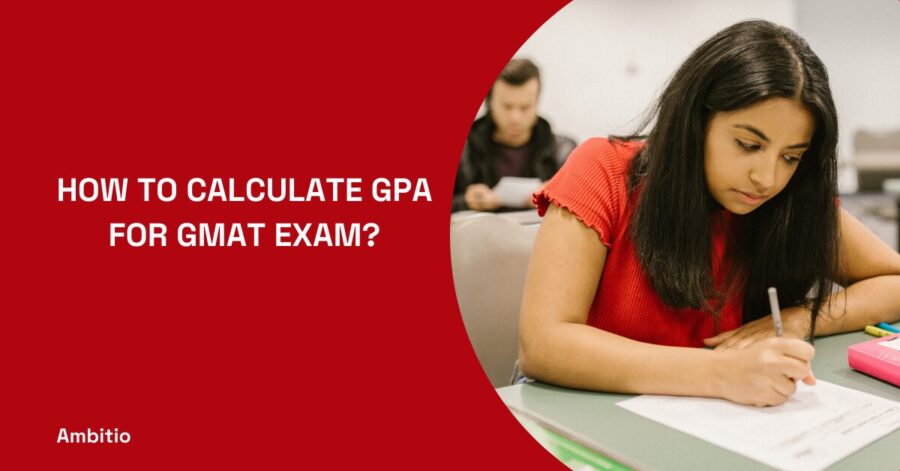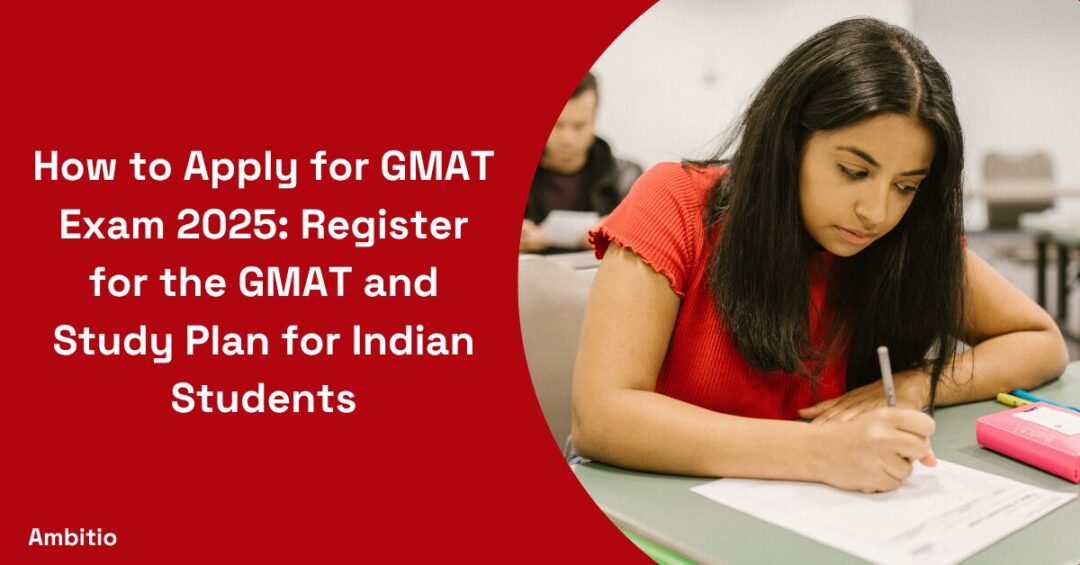14 December 2024
7 minutes read
45 Days GMAT Study Plan to Boost Your Score

The Graduate Management Admission Test (GMAT) often becomes a crucial stepping stone for aspiring business professionals. With a tight 45-day window, achieving success requires both a well-laid plan and intense dedication. This study plan aims to guide you through each day, ensuring that when test day arrives, you’re not just prepared, but confident and eager.
Why 45 days is the sweet spot for GMAT prep
The Challenge and Opportunity
Let’s address the elephant in the room: Why 45 days? A month and a half might seem either too short or unnecessarily long depending on your background. However, this period strikes the right balance between urgency and giving yourself enough time for thorough preparation.
Imagine preparing for a marathon. Too short a prep time and you risk injury; too long and you might lose motivation or peak too early. Similarly, 45 days for GMAT offers a window where the pressure keeps you motivated, but there’s still ample time to cover each topic methodically.
Essential tools for your study plan
As with any challenge, the right tools can make all the difference. GMAT is no exception. Ensure you have:
- Official GMAT Guide: This should be your primary resource. It not only contains practice questions but also offers insights into the GMAT’s format and logic.
- Error Log: A simple yet powerful tool. Every time you make a mistake in a mock test or practice question, note it down. Over time, you’ll see patterns – consistent mistakes that you can then address.
- Reliable Prep Books: Apart from the official guide, invest in one or two highly recommended GMAT prep books. They offer different strategies and approaches which can be beneficial.
- Online Forums and GMAT Clubs: Interacting with peers, discussing problems, and sharing resources can immensely help in your prep journey.
Crafting your GMAT Study Schedule
Organizing your time effectively is the key. Here’s a deeper dive into how to structure your 45 days:
Weeks 1-3: Building Foundations
- Understanding the GMAT: Familiarize yourself with the structure of the test and its sections – Quant, Verbal, AWA, and IR.
- Initial Diagnostic Test: Gauge your current standing. This sets the baseline.
- Study Materials: Gather essential resources – Official Guide, Manhattan GMAT books, and online subscriptions like e-GMAT.
Weeks 4-12: Quantitative Section
- Basic Math Skills: Refresh your arithmetic, algebra, and geometry.
- Data Sufficiency: Learn strategies specific to data sufficiency questions.
- Weekend Mock Tests: Every weekend, take a mock test focusing on the Quant section. Review errors.
Weeks 13-21: Verbal Section
- Sentence Correction (SC): Start with grammar rules, then move to advanced SC strategies.
- Reading Comprehension (RC): Practice active reading. Understand the passage’s structure and main idea.
- Critical Reasoning (CR): Focus on argument construction, strengthening, and weakening questions.
- Weekly Mock Tests: Each weekend, take a Verbal-focused mock test.
Weeks 22-30: Integrated Reasoning (IR) & Analytical Writing Assessment (AWA)
- IR Practice: Familiarize yourself with multi-source reasoning, graphics interpretation, and other question types.
- AWA: Understand the essay’s structure. Practice writing and get feedback.
Weeks 31-37: Comprehensive Revision
- Quant & Verbal Together: Combine sections for holistic practice.
- Error Log Review: Revisit the error log you’ve been maintaining. Focus on weaknesses.
- Take Full-Length Mock Tests: These should emulate the real GMAT experience, timing, and all.
Weeks 38-44: Fine-tuning and Practice
- Alternate Day Mock Tests: Test endurance and consistency.
- Review and Revisit: Focus on areas where you consistently err or spend more time.
- Mental Preparation: Incorporate relaxation techniques to manage stress and anxiety.
Week 45: Final Prep and Exam Day
- Taper Down Intensity: This week isn’t for learning new concepts. It’s about confidence and calmness.
- Last Mock Test: Take your final mock test three days before D-day.
- One Day Before: Relax. Briefly go through your notes, but prioritize mental well-being.
- GMAT Day: Get a good night’s sleep. Reach the test center early. Believe in your preparation and give it your best shot!
Essential Tips to Ace the GMAT in 45 Days
Here’s a closer look at some strategies:
- Official Guide (OG) Importance:
- OG questions closely resemble actual GMAT questions.
- Prioritize OG, attempt each question at least once for familiarity.
- GMAT Club and Free Resources:
- GMAT Club is a community with resources and experiences.
- Rely on quality, recommended free sources over quantity.
- Effective Use of Practice Tests:
- Practice tests simulate the real exam experience.
- Learn from mistakes, understand answer logic.
- Enhance time management and pressure handling skills.
The Final Countdown: Last 3 Days Before the GMAT
It’s crucial not to burn out during these last days. Focus on:
- Revision: Go over your error log, and reattempt questions you previously got wrong.
- Relaxation: Mental well-being is crucial. Engage in light activities, ensure proper sleep, and stay hydrated.
- Confidence Building: Remind yourself of the hard work you’ve put in. Trust your preparation.
Evaluating the GMAT Sections
Understanding the sections of the GMAT is pivotal to ensure holistic preparation. Here’s what you should know:
- Quantitative (Quant):
- What it Tests: Your analytical and mathematical skills.
- Preparation Tip: Brush up on high school math topics. Work on speed and accuracy. Remember, it’s not about complex math but how you apply basic concepts.
- Verbal:
- What it Tests: English comprehension, critical reasoning, and grammar.
- Preparation Tip: Read a variety of texts – newspapers, journals, novels. This enhances comprehension. For sentence correction, understanding the structure of sentences is key.
- Integrated Reasoning (IR):
- What it Tests: Your ability to evaluate data in different formats.
- Preparation Tip: Familiarize yourself with graphs, tables, and data interpretations. Practice multitasking, as you’ll often need to pull data from multiple sources to answer a question.
- Analytical Writing Assessment (AWA):
- What it Tests: Your ability to critique an argument in written form.
- Preparation Tip: Practice writing concise, clear essays. Strengthen your ability to identify logical flaws in arguments.
Role of Practice Tests in Your GMAT Study Plan
Let’s dive deeper into the significance of practice tests:
- Identifying Weaknesses: Every practice test is an opportunity to spot patterns in mistakes. Are you consistently getting geometry questions wrong? Or perhaps sentence correction isn’t your forte? Recognizing these patterns can guide your study.
- Time Management: The GMAT isn’t just about knowing the answers; it’s about knowing them within a time frame. Practice tests help you get used to the time pressure.
- Building Stamina: The GMAT is a long exam. Sitting and focusing for such an extended period can be challenging. Regular practice tests help build this stamina.
Materials and Resources for GMAT Preparation
The market is flooded with countless GMAT prep resources. How do you pick the best ones? And, how do you make the most of them?
- Official GMAT Prep Books: This is non-negotiable. The official books give a real sense of the type and difficulty of questions you’ll face. They provide official retired questions from previous exams.
- Online Forums like GMAT Club: Platforms like GMAT Club offer a plethora of resources – from questions and quizzes to invaluable advice from those who’ve walked the path.
- E-GMAT & Other Online Platforms: While many prefer books, online platforms like e-GMAT offer structured courses, especially beneficial for non-natives. They break down the concepts making them easy to understand.
- Mock Tests from Various Providers: Kaplan, Manhattan, and Veritas – all offer mock tests. Diversifying the source of your mock tests exposes you to a wider range of questions and helps you prepare for unexpected challenges.
The Mental Aspect of GMAT Preparation
You’re not just preparing your mind for the GMAT academically, but also mentally.
- Regular Breaks: Every hour, take a 5-minute break. Walk around, stretch, or even meditate. This helps in retention and focus.
- Healthy Lifestyle Choices: A balanced diet, regular exercise, and adequate sleep are crucial. They aid cognitive functions and increase concentration levels.
- Visualization: This might sound a tad spiritual, but visualizing success can be a powerful motivator. Picture yourself scoring that 720. It gives a mental boost!
- Error Logs: Every mistake is a learning opportunity. Maintain an error log. Not only will it help you identify patterns in your mistakes but also serves as a reminder of concepts to revisit.
A Day Before the GMAT
- Relax and Wind Down: This isn’t the day for heavy revision or taking a mock test. Go through flashcards, and skim through notes, but avoid heavy studying.
- Check Your Test Day Essentials: Admit card, ID proofs, stationery – ensure you have all these ready.
- Early to Bed: A good night’s sleep is essential. Aim for at least 7-8 hours.
Test Day!
- Healthy Breakfast: A mix of protein and complex carbs will ensure sustained energy release.
- Reach Early: Aim to arrive at least 30 minutes before. This helps you relax, complete check-in procedures, and get used to the environment.
- Trust Yourself: Remember the hard work you’ve put in. Approach each question with confidence.
Post-Exam Reflection
Once the GMAT is done, give yourself a well-deserved break. But, it’s also essential to reflect:
- Review your Test: Understand where you went wrong. This isn’t to lament but to learn. If you plan to retake or if you’re sharing tips with peers, this reflection is invaluable.
- Celebrate: Regardless of your score, the journey of preparing for the GMAT is challenging. Celebrate your effort, resilience, and dedication.
Conclusion: The Final Push Towards 720 and Beyond
Targeting a 720 GMAT score is commendable. It’s a score that can open doors to top MBA programs. But remember, while the score is a ticket, your journey of preparation, discipline, dedication, and hard work, shape your capability. Embrace this journey, take each day as it comes, and always remember your end goal.
FAQs
1. How important is the official guide in my GMAT preparation?
The official guide is paramount. It gives you a genuine feel of the questions and the format of the GMAT.
2. Is a 45-day study plan sufficient for a beginner?
For someone with a solid grasp of high school math and good English proficiency, 45 days can be adequate with intense dedication. However, if you’re starting from scratch, you might need more time.
3. How many mock tests should I ideally take?
At least 7-8. Start with one at the beginning, and as you approach the exam date, increase the frequency.
4. How do I improve my stamina for the exam?
Regular full-length practice tests, healthy sleep patterns, and regular breaks during study sessions help in building stamina.
5. How much importance should I give to the AWA and IR sections?
While Quant and Verbal significantly influence your 800 scores, AWA and IR are crucial for MBA admissions. A good score in these sections showcases a well-rounded candidate.
6. Can I balance GMAT prep with a full-time job?
Absolutely! Many have done it before. It requires meticulous time management and maximizing weekends. A study schedule becomes all the more crucial.
7. How many hours a day should I study?
For a 45-day plan, aiming for 3-4 hours on weekdays and 6-8 hours on weekends is a good rule of thumb.
8. How do I handle GMAT test anxiety?
Practice mindfulness and deep breathing exercises. The more mock tests you take, the more familiar the exam will feel, reducing anxiety.
9. Are there any quick tips for improving GMAT verbal for non-natives?
Reading diverse materials, practicing actively, and focusing on understanding the logic behind SC, CR, and RC questions helps.
10. What’s the significance of the GMAT in MBA admissions?
While GMAT is a significant component, MBA admissions consider several factors – essays, GPA, recommendation letters, interviews, and work experience. A balanced profile is the key.
11. Is 45 weeks too long for GMAT prep?
For some, it might seem lengthy, but if you’re a working professional or have other commitments, spreading out the prep can reduce daily study hours and enhance retention.
12. How do I stay motivated over such a long duration?
Set mini-milestones. Celebrate small wins, be it mastering a topic or scoring well in a mock test.
13. How many hours a day should I study in this 45-week plan?
1-2 hours on weekdays and 3-4 hours during weekends should be adequate, given the extended timeframe.
14. Should I join a study group?
If you’re a person who benefits from group study! It can offer diverse perspectives and mutual motivation.
15. How many mock tests should I ideally take?
Around 20-30 full-length mock tests spread across the preparation period should provide a comprehensive assessment.

You can study at top universities worldwide!
Get expert tips and tricks to get into top universities with a free expert session.
Book Your Free 30-Minute Session Now! Book a call now




























